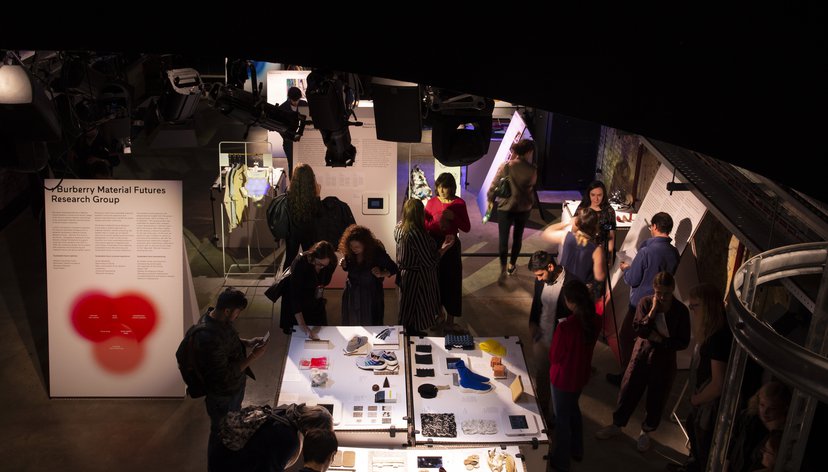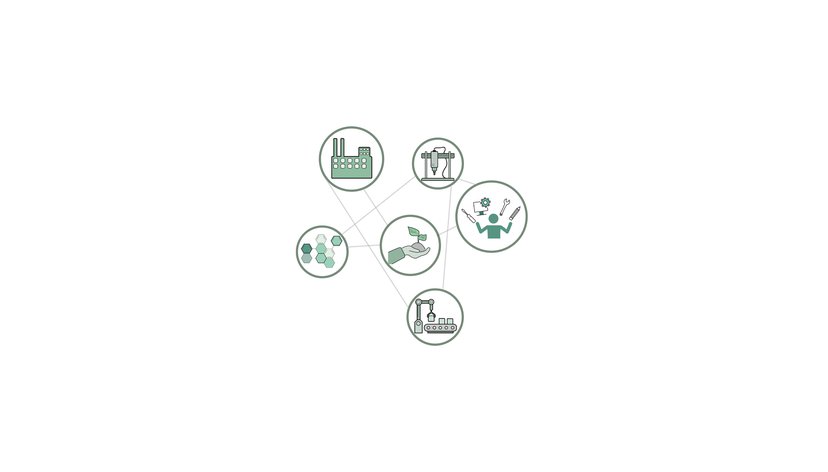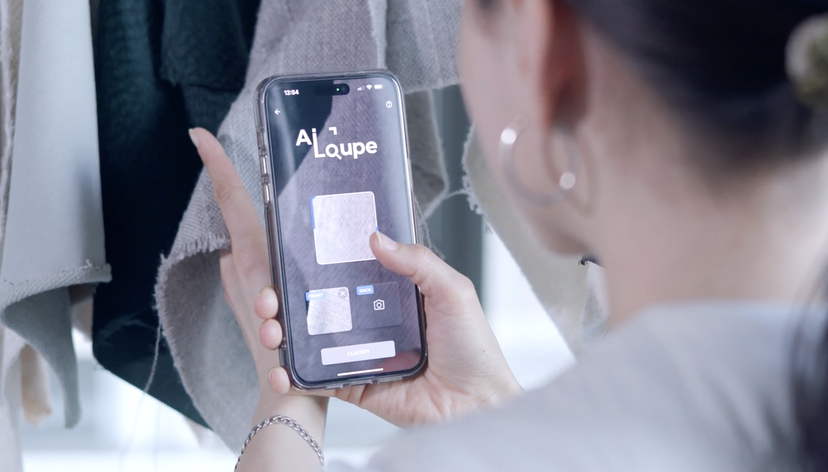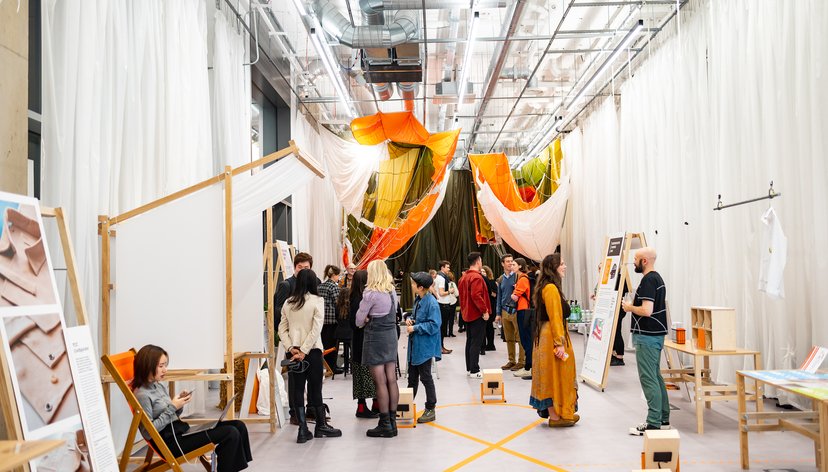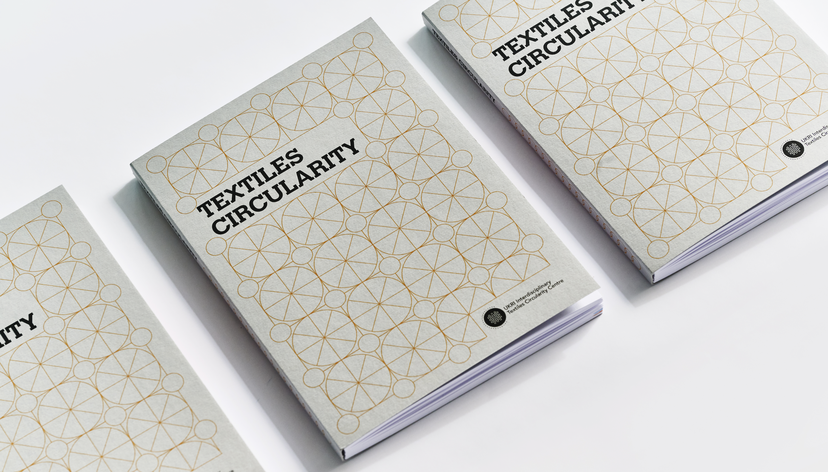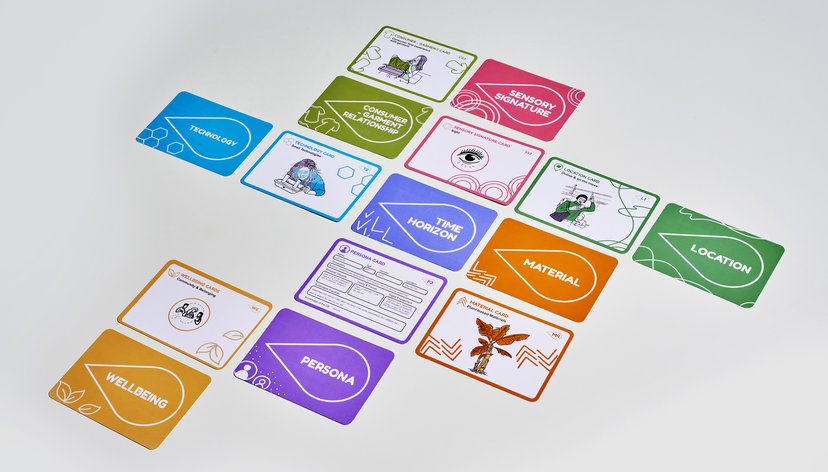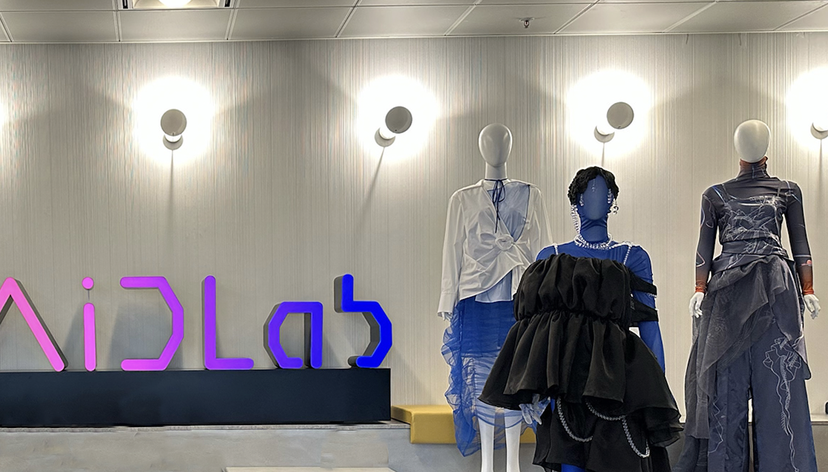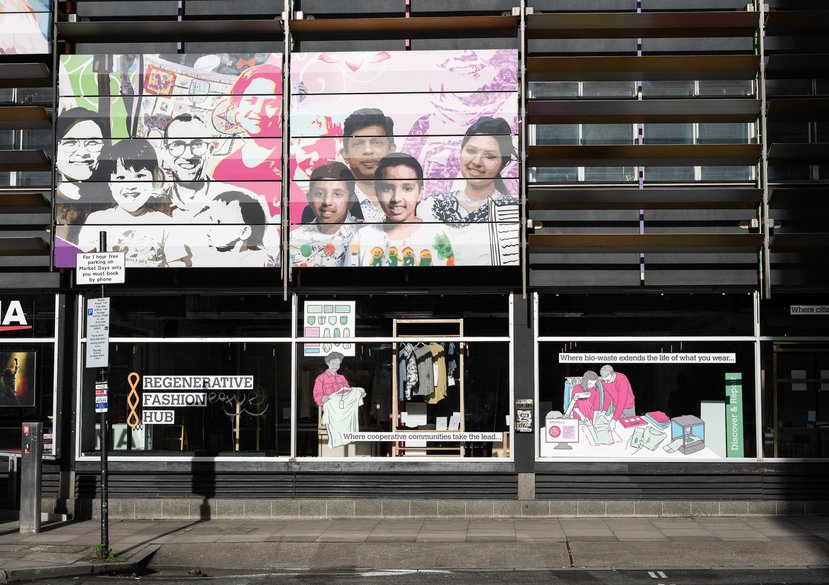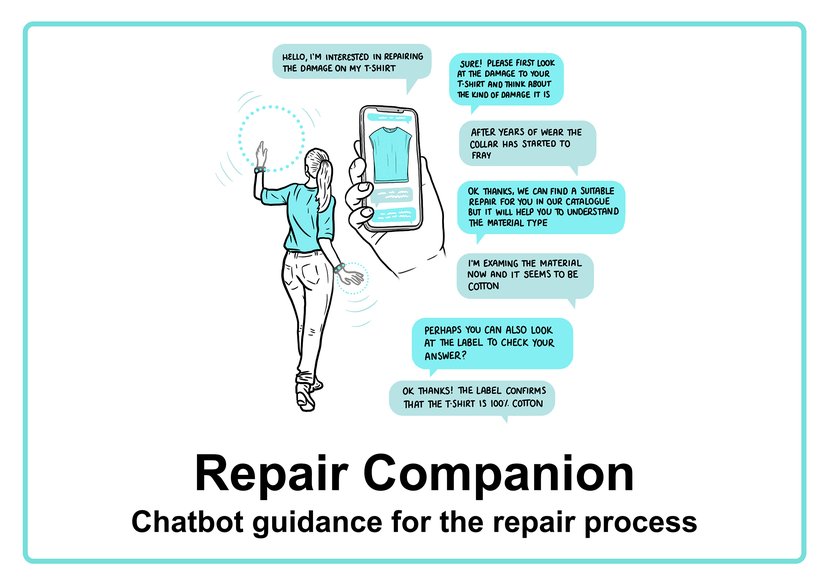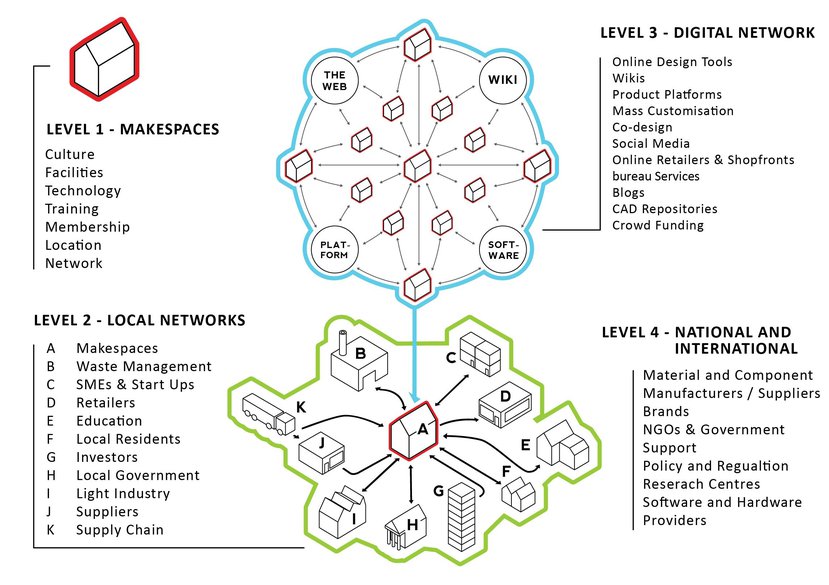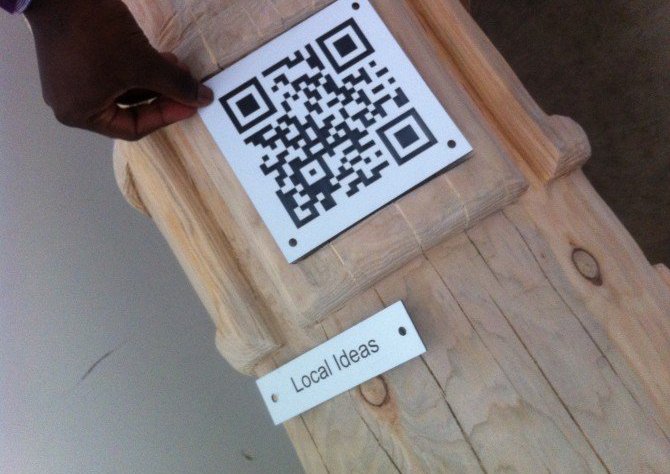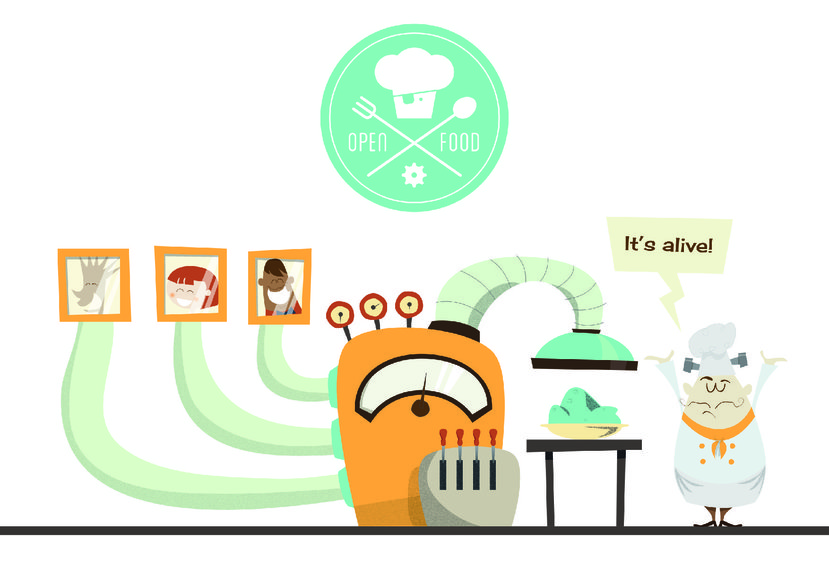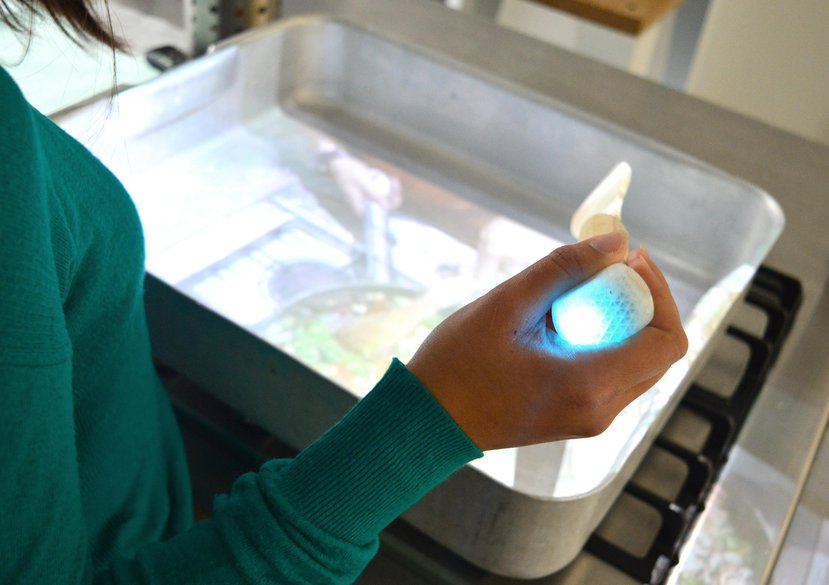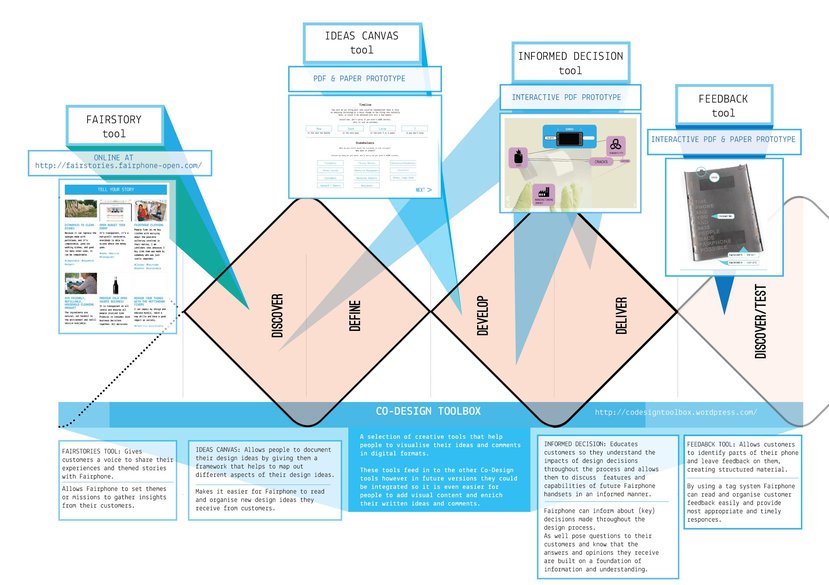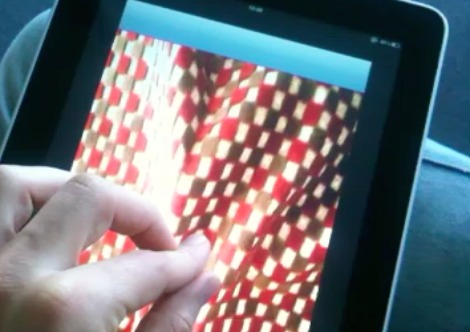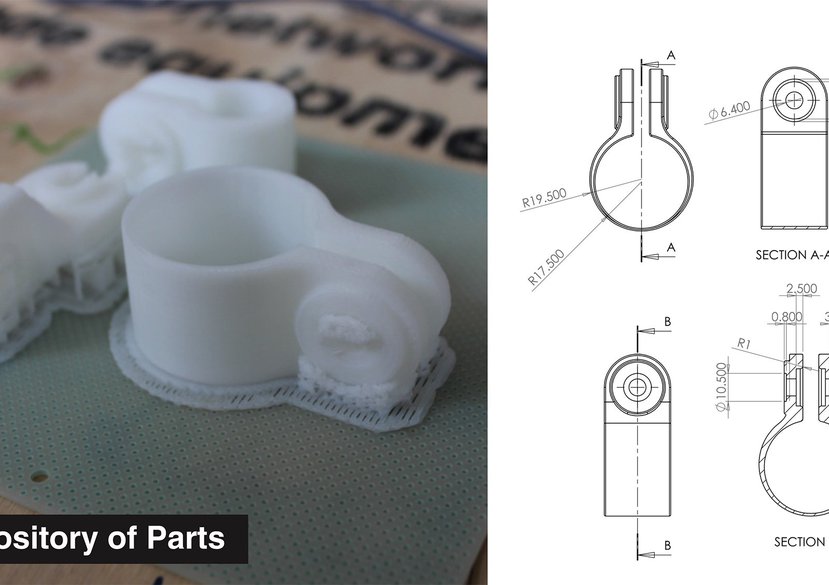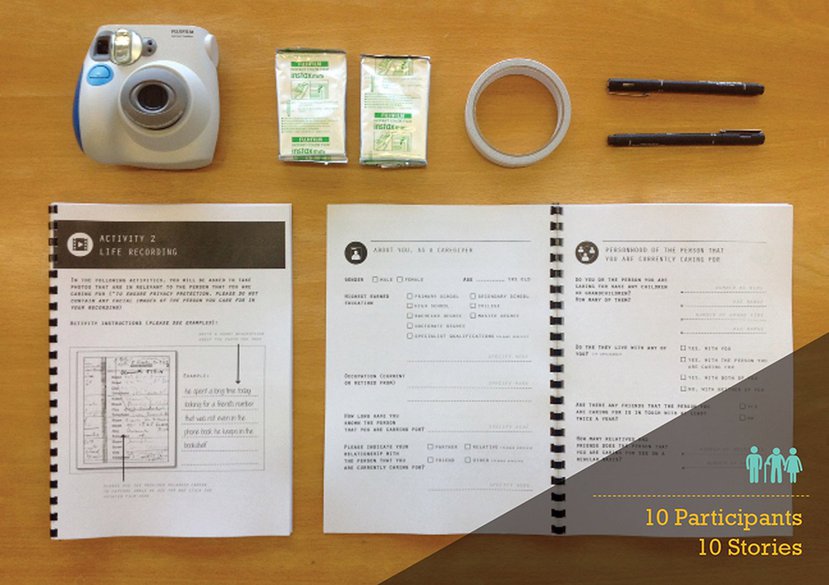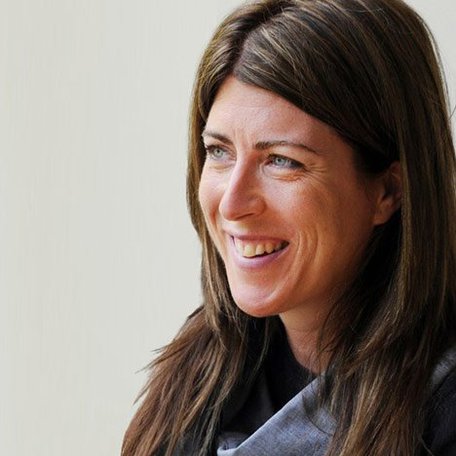
Professor Sharon Baurley
- Director
- Professor of Design & Materials
-
Materials Science Research Centre
Sharon is Professor of Design & Materials, and Director of the RCA’s Materials Science Research Centre. She is responsible for the intellectual and strategic leadership of the Centre, raising research funding, management of staff members, and management of labs. She contributes to cross-College business through a number of committees.
Sharon’s research is focused on the circular economy and advanced inter-disciplinary human-centred design methods to explore new ‘Product Cultures’ and the social and materials systems they inhabit as a strategy for post-industrial Design in the age of the Anthropocene that de-couple the use of materials resources from economic development, in the context of the 'Fab City', where cities are locally productive whilst being globally connected.
Sharon studied Textile Design at undergraduate level at Winchester School of Art. Her work was awarded the 'Osborne and Little' Award at New Designers, Business Design Centre, London, and the Ideacomo Award for Printing and Dyeing from the Fashion Foundation of Japan (British Finalist, International Textile Design Contest, Fashion Foundation of Japan, Tokyo).
She went on to do a PhD in Textile Design (developing three-dimensional textile materials through transferring forming processes from engineering to design) at the RCA. Her PhD work, which is now a permanent exhibit at the Science Museum, London, was awarded the Josef Otten Award for Technical Innovation at TexPrint, Premier Vision, Paris. It was during her PhD that she started working across the disciplines of design and science. She took a year out of her PhD to take up the position of Visiting Fellow at Musashino Art University in Tokyo, funded by the Leverhulme Trust.
After graduating in 1997 she took up a research-teaching post, and then a research fellowship funded by the AHRC (focusing on the integration of electronic textiles into clothing for social digital applications in partnership with Vodafone and HP Labs) at Central Saint Martins (UAL), as well as a visiting research fellowship at Liverpool School of Art. In 2010, she assumed the position of Head of Design at Brunel University London, where she oversaw 700 students across six programmes, led the research strategy, and managed the Research Excellence Framework 2014 submission.
Sharon joined the RCA in 2014 as Head of Design Products, contributing to building research in the School of Design. Since 2018, as Director of the Materials Science Research Centre, she has led a significant part of the RCA’s strategy. She is also one of the centre directors in the National Interdisciplinary Circular Economy Research (NICER) Programme – a four-year £30 million investment from UKRI to move the UK towards a circular economy, leading the Textiles Circularity Centre.
Sharon has consulted for Courtaulds Textiles, London, Marks & Spencer, London, and Unilever, UK, and produced design work for Design Intelligence, UK.
Key details
School, Centre or Area
Research projects
Gallery
More information
Research interests
Sharon has a history of leading and managing UK research council-funded projects and a track record of conceptualising and directing inter-disciplinary research involving academic-industry partnerships. She employs synthetic thinking to pull together disparate concepts to specify research spaces. She is very interested in evolving approaches to couple methodology from different disciplines – HCI, drama, sensory science, psychophysics, engineering, materials science – with design methods to enhance understanding of human culture and the human condition and to apply this to different contexts (user innovation, sustainable consumption).
Her focus is on the invention and experience of materials to address the challenges of environmental sustainability and human well-being and how material systems innovation frames these challenges.
Research funding
Co-Investigator (Feb 2023-Jan 2027), Ecological Citizens: Tools, Technologies and Means to Enable Sustainable Digital Citizens, NetworkPlus (EP/W020610/1), (£2.6M).
Principal Investigator (Nov 2021-Dec 2024), Consumer Experience (CX) Digital Tools for Dematerialisation for the Circular Economy, Digital Economy Sustainable Digital Society (EP/V042289/1), (£845,000).
Principal Investigator (Jan 2021-Dec 2024), Textiles Circularity Centre, UK Research and Innovation (UKRI) Interdisciplinary Circular Economy Centres Programme (EP/V011766/1), (£5.4M).
Principal Investigator (Sept 2021-Dec 2024), Sensory Materials Library funded by The Laboratory for Artificial Intelligence and Design (AiDLab).
Co-Investigator (May 2020-May 2022), Bio-manufacturing Textiles from Waste, BBSRC Follow-on fund (BB/T017023/1), (£776,000), with University of York (lead) and University of Leeds.
Co-Applicant (Oct 2019-Oct 2020), A Brazil-UK Network for Natural Polymers derived from Local Food Industry By-Products, British Academy of Medical Sciences, GCRF Networking Grants (GCRFNGR4\1482), with University of São Paulo, Brazil (lead).
Co-Investigator (Dec 2016-Nov 2019), Citizen Naturewatch, EPSRC (EP/P006353/1), (£351,880) with Goldsmiths, University of London (lead).
Academic partner (2015-2021), From Human Data to Personal Experience, EPSRC Next Stage Digital Economy with Horizon/University of Nottingham (£4M total; £23,000 RCA).
Principal Investigator (Jan 2015-Dec 2016), Future Makespaces in Re-Distributed Manufacturing, EPSRC Re-Distributed Manufacturing (EP/M017591/1), (£500,000).
Principal Investigator (Feb 2013-March 2018), Prototyping Open Innovation Models for ICT-Enabled Manufacturing in Food and Packaging, EPSRC Future ICT-enabled manufacturing – inter-disciplinary research clusters (EP/K014234/2), (£2.4M from EPSRC). The project involved Brunel, Cranfield, Imperial College London, Horizon Digital Economy Research/University of Nottingham.
Principal Investigator (Jun 2013-Jul 2014), Stories of User Appropriation (AH/K00266X/1), Arts and Humanities Research Council Creative Economy Knowledge Exchange (commissioned), (£250,000).
Academic partner (2012-2013), Open Innovation Network for Expertise in Design (COINED), JISC Business and Community Engagement Programme: Access to Resources and Open Innovation Phase 2. The project involved University for the Creative Arts (UCA) and Brunel (£99,000).
Principal Investigator (Jan 2012-Dec 2013), Artefact Café, Horizon Digital Economy Research (£50,000).
Principal Investigator (Jan 2012-Dec 2013), User Innovation Communities: Digital Tools for Cultural Production (EP/I032061/1), (£124,715), RCUK Digital Economy Programme ‘Research in the Wild’ initiative.
Co-Investigator (Jan 2011-Dec 2011), Community Web2.0: creative control through hacking, Connected Communities Programme (AH/I507620/1), (£40,000). The project involved Edinburgh College of Art (Architecture), Brunel (Design) and University of Leicester (Geography).
Oct 2009-Sept 2015, Spoke, Horizon, University of Nottingham’s Digital Economy Research Hub (EP/G065802/1), (£40M, of which ~£187,500 assigned to Sharon).
Principal Investigator (Nov 2009-Oct 2011), Digital Sensoria (EP/H007083/2), Design in the Digital Economy sandpit, RCUK Digital Economy Programme (£775,435).
Co-Investigator and principal author (Jan-Dec 2005) of EPSRC/AHRC Designing for the 21st Century Initiative research cluster, The Emotional Wardrobe (EP/C516281/1) (£50,000).
Principal Investigator (Mar 2004-Feb 2007), EPSRC Network: Smart Textiles for Intelligent Consumer Products (GR/S47007/01), (£60,000).
May 2003-Apr 2006, AHRC Fellowship: Interactive and experiential design of smart textiles for intelligent products (AR15760), (£252,500).
Sept 1998-Aug 1999, Visiting Research Fellowship, Liverpool Art School, John Moores University, Liverpool (£19,660).
Apr 1995-Apr 1996, Leverhulme Trust Study Abroad Studentship: Contemporary Japanese Textile Making, Visiting Fellow, Musashino Art University, Tokyo (£20,000).
Oct 1992-June 1997, PhD funding: Worshipful Company of Fanmakers, Clothworkers' Foundation (City of London Livery Company), and Jaegar funding awards.
Awards
Josef Otten Award for Technical Innovation
Ideacomo Award for Printing and Dyeing
Current and recent projects
Co-Investigator (February 2023 – January 2027), Ecological Citizens: Tools, Technologies and Means to Enable Sustainable Digital Citizens, NetworkPlus (EP/W020610/1), (£2.6M).
Principal Investigator (November 2021 – December 2024), Consumer Experience (CX) Digital Tools for Dematerialisation for the Circular Economy, Digital Economy Sustainable Digital Society (EP/V042289/1), (£845,000).
Principal Investigator (January 2021 – December 2024), Textiles Circularity Centre, UK Research and Innovation (UKRI) Interdisciplinary Circular Economy Centres Programme (EP/V011766/1), (£5.4M).
Principal Investigator (September 2021 – December 2024), Sensory Materials Library funded by The Laboratory for Artificial Intelligence and Design (AiDLab).
Co-Investigator (May 2020 – May 2022), Bio-manufacturing Textiles from Waste, BBSRC Follow-on fund (BB/T017023/1), (£776,000), with University of York (lead) and University of Leeds.
Co-Applicant (October 2019 – October 2020), A Brazil-UK Network for Natural Polymers derived from Local Food Industry By-Products, British Academy of Medical Sciences, GCRF Networking Grants (GCRFNGR4\1482), with University of São Paulo, Brazil (lead).
Co-Investigator (December 2016 – November 2019), Citizen Naturewatch, EPSRC (EP/P006353/1), (£351,880) with Goldsmiths, University of London (lead).
Academic partner (2015–21), From Human Data to Personal Experience, EPSRC Next Stage Digital Economy with Horizon/University of Nottingham (£4M total; £23,000 RCA).
Principal Investigator (January 2015 – December 2016), Future Makespaces in Re-Distributed Manufacturing, EPSRC Re-Distributed Manufacturing (EP/M017591/1), (£500,000).
Principal Investigator (February 2013 – March 2018), Prototyping Open Innovation Models for ICT-Enabled Manufacturing in Food and Packaging, EPSRC Future ICT-enabled manufacturing – inter-disciplinary research clusters (EP/K014234/2), (£2.4M from EPSRC). The project involved Brunel, Cranfield, Imperial College London, Horizon Digital Economy Research/University of Nottingham.
Principal Investigator (June 2013-July 2014), Stories of User Appropriation (AH/K00266X/1), Arts and Humanities Research Council Creative Economy Knowledge Exchange (commissioned), (£250,000).
Academic partner (2012–13), Open Innovation Network for Expertise in Design (COINED), JISC Business and Community Engagement Programme: Access to Resources and Open Innovation Phase 2. The project involved University for the Creative Arts (UCA) and Brunel (£99,000).
Principal Investigator (January 2012 – December 2013), Artefact Café, Horizon Digital Economy Research (£50,000).
Principal Investigator (January 2012 – December 2013), User Innovation Communities: Digital Tools for Cultural Production (EP/I032061/1), (£124,715), RCUK Digital Economy Programme ‘Research in the Wild’ initiative.
Co-Investigator (January 2011 – December 2011), Community Web2.0: creative control through hacking, Connected Communities Programme (AH/I507620/1), (£40,000). The project involved Edinburgh College of Art (Architecture), Brunel (Design) and University of Leicester (Geography).
October 2009 – September 2015, Spoke, Horizon, University of Nottingham’s Digital Economy Research Hub (EP/G065802/1), (£40M, of which ~£187,500 assigned to me).
Principal Investigator (November 2009 – October 2011), Digital Sensoria (EP/H007083/2), Design in the Digital Economy sandpit, RCUK Digital Economy Programme (£775,435).
Co-Investigator and principal author (January – December 2005) of EPSRC/AHRC Designing for the 21st Century Initiative research cluster, The Emotional Wardrobe (EP/C516281/1) (£50,000).
Principal Investigator (March 2004 – February 2007), EPSRC Network: Smart Textiles for Intelligent Consumer Products (GR/S47007/01), (£60,000).
May 2003 – Apr 2006, AHRC Fellowship: Interactive and experiential design of smart textiles for intelligent products (AR15760), (£252,500).
September 1998 – August 1999, Visiting Research Fellowship, Liverpool Art School, John Moores University, Liverpool (£19,660).
April 1995 – April 1996, Leverhulme Trust Study Abroad Studentship: Contemporary Japanese Textile Making, Visiting Fellow, Musashino Art University, Tokyo (£20,000).
October 1992 – June 1997, PhD funding: Worshipful Company of Fanmakers, Clothworkers' Foundation (City of London Livery Company), and Jaegar funding awards.
Publications, exhibitions, other outcomes
Journal Papers Refereed
Millward-Hopkins, J., Purnell, P., Baurley, S. (2023) ‘Scenarios for reducing the environmental impacts of the UK clothing economy’. Journal of Cleaner Production, Volume 420, 138352.
Morrow, R., Ribul, M., Eastmond, H., Lanot, A., Baurley, S. (2023) ‘Bio-producing bacterial cellulose filaments through co-designing with biological characteristics’. Materials 14 (1).
Milward-Hopkins, J., Purnell, P., Baurley, S. (2023) ‘A material flow analysis of the UK clothing economy’. Journal of Cleaner Production, Volume 407.
Petreca, B., Baurley, S., Hesseldahl, K., Pollman, A., Obrist, M. (2022) ‘The compositor tool: Investigating consumer experiences in the circular economy’. Multimodal Technologies and Interaction 6(4): 24.
Ribul, M., Lanot, A., Tommencioni-Pisapia, C., Baurley, S., McQueen-Mason, S. (2021) ‘Mechanical, chemical, biological: moving towards closed-loop biochemical recycling in a circular economy of sustainable textiles’. Journal for Cleaner Production, Volume 326.
Petreca, B., Saito, C., Baurley, S., Atkinson, D., Yu, X., Bianchi-Berthouze, N. (2018) ‘Radically relational tools: A design framework to explore materials through embodied processes’. International Journal of Design, Volume 13, No 2.
Lawson, G., Brown, M., Coughlan, T., Floyde, A., Baurley, S., Elliott, M., Koppe, T., Tsai, A. (2016) 'Enhancing the design process with drama-related methods'. The Design Journal, 19:4, 605-623.
Atkinson, D., Petreca, B., Baurley, S., Bianchi-Berthouze, N., Watkins, P. (2015) 'The tactile triangle: a design research framework demonstrated through tactile comparisons of textile materials'. The Journal of Design Research, 14(2): 142.
Tsimiklis, P., Ceschin, F., Green, S., Qin, S-F., Song, J., Baurley, S., Rodden, T., Makatsoris, C. (2015) ‘A consumer-centric open innovation framework for food and packaging manufacturing’. International Journal of Knowledge and Systems Science, 6(3), 52-69.
Singh, H., Bauer, M., Chowanski, W., Baurley, S., Fry, M., Evans, J., Bianchi-Berthouze, N. (2014) ‘The brain’s resonance to pleasant touch: an EEG investigation of tactile caressing'. Frontiers in Human Neuroscience, 8: 893.
Tooze, J., Baurley, S., Smith, P., Phillips, R., Foote, E., Silve, S. (2014) 'Open Design: Contributions, Solutions, Processes and Projects'. The Design Journal, 17 (4).
Phillips, R., Baurley, S., Silve, S. (2014) 'Citizen science and open design: Workshop findings'. Design Issues, 30(4).
Phillips, R., Lockton, D., Baurley, S., Silve, S. (2013) ‘Making instructions for others: exploring mental models through a simple exercise’. Interactions, 20(5), 74–9.
Baurley, S. (2005) 'Clothing and Emotion'. Textile Asia, Business Press, Hong Kong. ISSN: 0049 3554.
Baurley, S. (2004) 'Interactive and Experiential Design in Smart Textile Products and Applications'. Journal of Personal and Ubiquitous Computing, Springer, 8(1).
Conference Papers Refereed
2023
Yu, C; Liu, Y; Petreca, B; Baurley, S; Berthouze, N. (2024) 'T²GR²: Textile Touch Gesture Recognition with Graph Representation of EMG'. In Proceedings of the 2023 11th International Conference on Affective Computing and Intelligent Interaction Workshops and Demos (ACIIW). IEEE: Cambridge, MA, USA.
2021
Phillips, R., Tooze, J., Smith, P., Baurley, S. (2021) ‘Modular approach to designing 3D printed products: Custom HCI design and fabrication of functional products’. In: Design, User Experience, and Usability: Design for Diversity, Well-being, and Social Development. HCII 2021. Lecture Notes in Computer Science, vol 12780, pp 627-646. Springer, Cham. 23rd International Conference on Human-Computer Interaction, 24-29th July 2021, Washington, USA.
2020
Hesseldahl, K., Baurley, S., Petreca, B. (2020) 'Who designs (in) the circular economy?' International Society for the Circular Economy conference, 6-7 July 2020 (online).
Baurley, S., Petreca, B., Selinas, P., Selby, M., Flintham, M. (2020) 'Modalities of Expression: Capturing Embodied Knowledge in Cooking'. In TEI '20: Proceedings of the Fourteenth International Conference on Tangible, Embedded, and Embodied Interaction, Sydney, Australia, P785–797, 9-12 February 2020.
2018
Petreca, B., Atkinson, D., Baurley, S., Cary, L., Wang, K., Yu, X, Bianchi-Berthouze, N. (2018) 'Digital Social Exchanges Of Tactile Experiences Of Textiles'. In workshop Proceedings of the 36th International Conference on Human factors in Computing Systems, CHI 2018.
2017
Pantidi, N., Selinas, P., Baurley, S., Rodden, T., Flintham, M. (2017) 'Bread Stories: Understanding the drivers of bread consumption for digital food customisation'. In ACM Proceedings of OzCHI 2017 - Human-Nature, Australian Computer-Human Interaction Conference, Brisbane, 28 Nov–1 December 2017.
Paine, H., Goldsworthy, K., Baurley, S. (2017) 'Evolutionary approach of a textile designer through cross-disciplinary research practice: A case study in the field of advanced methods for joining textiles'. In Proceedings of INTERSECTIONS, Collaborations in Textile Design Research, Loughborough University London, 13 September 2017.
Petreca, B., Saito Junqueira Aguiar, S., Yu, Xuemei., Bianchi-Berthouze, N., Baurley, S. (2017) 'Radically Relational: Using Textiles As A Platform To Develop Methods For Embodied Design Processes'. In Proceedings of the Design Research Society Special Interest Group on Experiential Knowledge (EKSIG), TUDelft, 19-20 June 2017.
2016
Petreca, B., Baurley, S., Bianchi-Berthouze, N. and Tajadura-Jiménez, A. (2016) 'Investigating nuanced sensory experiences in textiles selection'. In Proceedings of the 2016 ACM International Joint Conference on Pervasive and Ubiquitous Computing: Adjunct, 989–994. ACM.
2015
Petreca, B., Bianchi-Berthouze, N., Baurley, S. (2015) 'How do designers feel textiles?'. In Proceedings of the 2015 International Conference on Affective Computing and Intelligent Interaction (ACII), Volume: 2015.
2014
Coughlan, T., Brown, M., McAuley D., Baurley S., Tsai, A., Koppe, T., Elliott, M., Green, S. & Martin, J. (2014) 'Living with the User: Design Drama for Dementia Care through Responsive Scripted Experiences in the Home'. UBICOMP '14, Sep 13-17 2014, Seattle, WA, USA.
Petreca, B., Bianchi-Berthouze, N. Furniss, D., Baurley, S. (2014) 'The future of textiles Sourcing: Exploring the potential for digital tools'. 9th International Conference on Design & Emotion 2014, Bogota.
Phillips, R., Blum, J., Brown, M. & Baurley, S (2014). 'Testing a Grassroots Citizen Science Venture Using Open Design, “the Bee Lab Project”', May 2014, 1951–1956, ACM. CHI’14: Proceedings of the 32nd international conference on Human factors in computing systems.
Phillips, R. & Baurley, S. (2014) 'Exploring Open Design for the Application of Citizen Science; a Toolkit Methodology'. 8th Design Research Society conference: Design’s Big Debates. Umea, Sweden 16–19 June 2014.
Brown, M., Tsai, A., Baurley, S., Koppe, T., Lawson, G., Martin, J., Coughlan, T., Elliott, M., Arunachalam, U. (2014) 'Using Cultural Probes to Inform the Design of Assistive Technologies'. HCI International 2014, Crete.
Phillips, R., Blum, J., Brown, M. & Baurley, S. (2014) 'Testing a Grassroots Citizen Science Venture Using Open Design, “the Bee Lab Project”', May 2014, 1951–1956, ACM. CHI’14: Proceedings of the 32nd international conference on Human factors in computing systems.
2013
Coughlan, T., Brown, M., Martindale, S., Comber, R., Ploetz, T., Leder Mackley, K., Mitchell, V., Baurley, S. (2013) 'Methods for Studying Technology in the Home'. CHI'13 Extended Abstracts on Human Factors in Computing Systems, 3207–3210.
Petreca, B., Bianchi-Bertouze, N., Baurley, S., Watkins, P. Atkinson, D. (2013) 'An embodiment perspective of affective touch behaviour in experiencing digital textiles'. Fifth biannual Humaine Association Conference on Affective Computing and Intelligent Interaction (ACII 2013) Mediated Touch and Affect workshop. IEEE Computer Society.
Phillips, R., Ford, Y., Sadler, K., Silve, S., Baurley, S. (2013) 'Open design: non-professional user-designers creating products for citizen science, a case study of beekeepers', HCI International 2013, LNCS/LNAI/CCIS, Springer, June 2013.
Phillips, R., Silve, S., Baurley, S. (2013) 'The practical maker: investigating the definitions and requirements of and exploring the motivations behind bespoke making'. Crafting the Future, 10th European Academy of Design conference, University of Gothenburg, 17–19 April 2013.
Atkinson, D., Orzechowski, P., Petreca, P., Bianchi-Berthouze, N., Watkins, P., Baurley, S., Padilla, S., Chantler, M. (2013) 'Tactile Perceptions of Digital Textiles: a design research approach'. Proceedings of 2013 ACM SIGCHI Conference on Human Factors in Computing Systems, ACM, New York, NY.
Meese, R., Ali, S., Thorne, E. C., Benford, S., Quinn, A., Mortier, R., Koleva, B., Pridmore, T., Baurley, S. (2013) 'From Codes to Patterns: Learning from the Iterative Development of Trackable Tableware'. Proceedings of ACM SIGCHI Conference on Human Factors in Computing Systems, ACM, New York, NY.
2012
Valentine, O., Baurley, S. (2012) 'Fashioning 'Conspicuous Creation' — switching & stitching for more meaningful & enduring wearable technology', 9th ACM Conference on Designing Interactive Systems, Newcastle, UK, June 2012.
Smith, P., Tooze, J., Phillips, R., Silve, S., Baurley, S. (2012) 'How open is open design? What potential is there for open design through digital technologies?' 13th Conference on Rapid Design, Prototyping & Manufacturing, Lancaster University, June 2012.
Phillips, R. Silve, S., Baurley, S. (2012)'The trust of a maker and making to trust', Future everything 2012, Future everything.
Hughes, L., Atkinson, D., Bianchi-Berthouze, N. and Baurley, S. (2012) 'Crowdsourcing emotional and tactile garment perceptions'. Workshop on Re-conceptualizing Fashion in Sustainable HCI in conjunction with DIS'12 (Designing Interactive Systems).
Hughes, L., Atkinson, D., Bianchi-Berthouze, N. and Baurley, S. (2012) 'Crowdsourcing an emotional wardrobe', AltCHI 2012, ACM SIGCHI Conference on Human Factors in Computing Systems.
Orzechowski, P., Padilla, S., Atkinson, D., Chantler, M., Baurley. S., Bianchi-Berthouze, N., Watkins, P., Petreca, B. (2012) 'Archiving and Simulation of Fabrics with Multi-Gesture Interfaces' HCI 2012 – People and Computers XXVI, 12-14 September 2012, Birmingham. British Computer Society and ACM Digital Library.
2011
Wu, D., Wu, T-I., Singh, H., Padilla, S., Atkinson, D., Bianchi-Berthouze, N., Chantler, M. and Baurley, S. (2011) 'The affective experience of handling digital fabrics: Tactile and visual cross-modal effects'. In: D'Mello, S., Graesser, A., Schuller, B. and Martin, J-C. eds. Affective Computing and Intelligent Interaction: Part 1. Berlin/Heidelberg : Springer (6974 LNCS): 427–436.
Methven, T., Orzechowski, PM., Chantler, M., Baurley, S. and Atkinson, D. (2011) 'Comparison of crowd-sourcing vs. traditional techniques for deriving consumer terms', Digital Engagement 2011.
Atkinson, D., Padilla, S., Chantler, M. and Baurley, S., (2011) 'Synthesising design methodologies for the transmission of tactile qualities in digital media', Digital Engagement 2011.
Orzechowski, PM., Atkinson, D., Padilla, S., Methven, TS., Baurley, S. and Chantler, M. (2011) 'Interactivity to enhance perception: Does increased interactivity in mobile visual presentation tools facilitate more accurate rating of textile properties?', 13th International Conference on Human Computer Interaction with Mobile Devices and Services, MobileHCI '11 - Proceedings of the 13th International Conference on Human Computer Interaction with Mobile Devices and Services, 629–634.
2009
Baurley, S. (2009) 'Synergies : design--smart materials—ubicomp. Ubiquitous Computing at a Crossroads Workshop': Art, Science, Politics and Design. Imperial College London, 6th and 7th January 2009.
2007
Baurley, S., Brock, P., Geelhoed, E., Moore, A. (2007) 'Communication-Wear: User Feedback as Part of a Co-Design Process' (2). In Proceedings of 2nd International Workshop on Haptic and Audio Interaction Design (HAID 2007), Seoul, Korea. Lecture Notes in Computer Science Series (LNCS), Springer, November 2007. ISBN: 978-3-540-76701-5.
Baurley, S., Brock, P., Geelhoed, E., Moore. A. (2007) 'Communication-Wear'. In Adjunct proceedings of Ubicomp 2007 - Transitive Materials: Towards an integrated approach to material technology. 9th International Conference on Ubiquitous Computing (Ubicomp 2007), Innsbruck, Austria. Lecture Notes in Computer Science Series (LNCS), Springer, September 2007. ISBN: 978-3-00-022599-4.
Baurley, S., Brock, P., Geelhoed, E., Moore, (2007) 'A. Communication-Wear: User Feedback as Part of a Co-Design Process' (1). Proceedings of THE GOOD, THE BAD AND THE UNEXPECTED: The user and the future of information and communication technologies, The Academy of National Economy, Moscow, Russian Federation. COST298, May 2007. ISBN: 5-901907-17-5.
2005
Randell, C., Baurley, S., Brock, P. (2005) 'Sensor Sleeve: Sensing Affective Gestures'. In Workshop proceedings on Body Sensing, 9th International Symposium on Wearable Computers (ISWC), Osaka Castle, Osaka, Japan, October 2005.
Dabnichki, P., Baurley, S., Stead, L. (2005) 'Emotionally-Responsive Clothing for Leisure and Exercise Activities'. Congress of the International Society of Biomechanics, Cleveland, Ohio, USA, 31 July-5 August 2005.
2004
Randell, C., Baurley, S., Chalmers, M., Muller, H. (2004) 'Textile Tools for Wearable Computing'. Proceedings of 1st International Forum for Applied Wearable Computing (IFAWC), University of Bremen, Germany, 2004. ISSN: 0340-3718.
Baurley, S. (2004) 'Interactive And Experiential Design in Smart Textile Products and Applications'. 2AD: The Second International Conference on Appliance Design, Hewlett-Packard Labs, Bristol, UK, February 2004. The Appliance Design Network, UK. ISBN-10: 0954746007.
2003
Baurley, S. (2003) 'Smart Textile Products & Applications.' Proceedings of Fibrous Assemblies at the Design and Engineering Interface (INTEDEC), Heriot Watt University, Edinburgh, UK, September 2003. ISBN: 0-9546162-0-0.
Baurley, S. (2003) 'Smart Textiles for Future Intelligent Consumer Products'. Proceedings of IEE Eurowearable, University of Birmingham, UK, September 2003. ISBN: 0-85296-282-7.
Book chapters
Baurley, S. (2011) 'The Role of Design in Facilitating Multi-Disciplinary Collaboration in Wearable Technology'. In: Ouwerkerk, M., Westerink, Joyce H.D.M., Krans, M. (eds.) Sensing Emotions in Context: The impact of context on behavioral and physiological experience measurements. Philips Research Book Series, Vol. 12, Springer, 181–195. ISBN: 978-90-481-3257-7.
Baurley, S., Geelhoed, G., Brock, P. and Moore, A. (2010) 'Communication wear: User feedback as part of a co-design process'. In: Gebhardt, J., Greif, H., Raycheva, L., Lobet-Maris, C. and Lasen, A. (eds.) Experiencing Broadband Society. Frankfurt am Main: Peter Lang Publishing Group (2).
Baurley, S., Stead, L. (2007) 'The Emotional Wardrobe', in: Inns, T (ed) (2007) Designing for the 21st Century: Interdisciplinary Questions and Insights, London: Gower Ashgate ISBN: 0 566 08737 5.
Geelhoed, E., Baurley, S., Reid, J., Hull, R. (2007) 'Probing Experiences: Logs, Traces, Self-report and a Sense of Wonder'. Philips Research, Eindhoven, Netherlands, June 2006, 'Probing Experiences: From academic research to commercial propositions', by Joyce H.D.M. Westerink, Martin Ouwerkerk, Thérèse J.M. Overbeek, W. Frank Pasveer, Boris de Ruyter (eds). in: (2007) Philips Research Book Series, Vol. 8, Springer, October 2007. ISBN: 978-1-4020-6592-7.
Baurley, S. (2005) 'Interaction Design in Smart Textiles Clothing', in: Tao, X. (ed) (2005)Wearable Electronics and Photonics, Cambridge: Woodhead Publishing Ltd, ISBN 1 85573 605 5.
Exhibitions
Filmed Interview, Plasticity: 100 Years of Making Plastics, Science Museum, London, 2007-2009.
3D Textile Cube Garment, Insane About the Membrane, University of Brighton, UK, 12 January - 7 February 2004. Curated by Leo Santos-Shaw.
3D Textile Concept Garment, Tactile Dimensions. Travelling Exhibition with The Knitting and Stitching Show, Alexandra Palace, London, UK, 10-13 October 2002. Curated by Yoshiko Wada.
3D Textile Design, Artists at Work: New technology in textile and fibre art, Museo Del Tessuto, Prato, Italy, 18 September - 3 November 2002. Juried (ISBN 88-7781-531-0).
3D Textile Concept Garments, permanent exhibit in the Science Museum, London, UK.
Anti-Theft Bag/clothing concept featured in ‘In the Bag and Off the Wall’ Design Against Crime exhibition, Design Museum, London, December 2000-January 2001.
Illusionary Textiles, New Tech-Styles: Technology and Innovation in Contemporary Textiles, Bonnington Gallery, Nottingham Trent University, March-April 1995.
Illusionary Textiles, International Textile Design Contest, Fashion Foundation of Japan, Hanae Mori Building, Tokyo, November 1992. Juried.
Illusionary Textiles, South Bank Picture Show, South Bank Centre, London (an exhibition of prize winning and selected entries) November 1991. Juried.
Illusionary Textiles, Fine...Cannibals, Ideas and Imagery Cannibalised by Contemporary Makers, Oldham Art Gallery (and travelling UK), January-July 1991.
External collaborations and activities
Sharon is a member of the Future Observatory ‘Green Transition Ecosystems’ Research Steering Group. Green Transition Ecosystems (GTEs) are large scale projects that focus on translating the best design-led research into real-world benefits. Future Observatory is coordinated by the Design Museum in partnership with the Arts and Humanities Research Council (UK Research and Innovation).
Sharon is a Fellow of the Higher Education Academy in recognition of attainment against the UK Professional Standards Framework for teaching and learning support in higher education.
Sharon has lectured at Musashino Art University, Tokyo and Nagoya University of Arts, Nagoya, Japan; the Architectural Association, London; and Kingston University.
Sharon has consulted for Courtaulds Textiles, London, Marks & Spencer, London, and Unilever, UK, and she was a Business Fellow in the London Technology Network.



